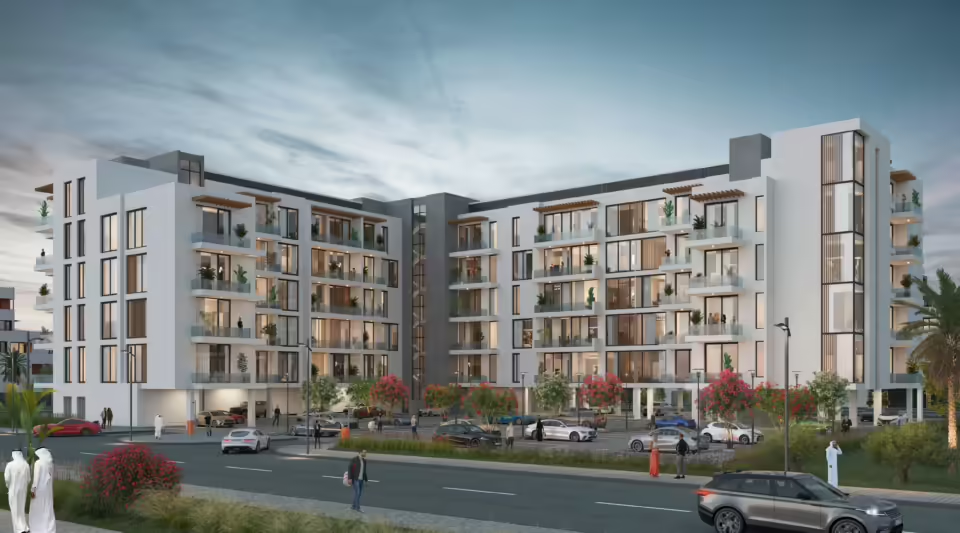
Danube Group Partners with Dubai Media Inc to Boost Market Presence
June 5, 2024
ForsaTEK V2.0 Enhances Aviation Innovation in Dubai
June 7, 2024In line with Dubai’s Quality of Life Strategy 2033, the Ports, Customs, and Free Zone Corporation (PCFC) has launched a cutting-edge air quality monitoring station in Jebel Ali. This initiative underscores Dubai’s dedication to balancing economic growth with environmental conservation.
The Objectives of Dubai’s Quality of Life Strategy 2033
The Objectives of Dubai’s Quality of Life Strategy 2033 are multi-faceted, underscoring the city’s commitment to improving the living standards across various dimensions for residents, expatriates, and tourists alike. The strategy aims to enhance environmental sustainability, bolster healthcare services, and stimulate robust economic growth.
In terms of **environmental sustainability**, initiatives such as the Jebel Ali Air Quality Monitoring Station are at the forefront. This station is a part of a larger plan to monitor and improve air quality, ensuring that residents breathe cleaner air. Other projects include increased green spaces and the promotion of clean energy sources, aiming to reduce Dubai’s carbon footprint.
For **health** improvements, the strategy focuses on expanding healthcare infrastructure, increasing access to medical services, and promoting healthier lifestyles. Initiatives such as new hospitals, wellness centers, and community health programs are rolled out to provide comprehensive healthcare solutions, making it easier for citizens to lead healthier lives.
On the **economic growth** front, the strategy prioritizes diversifying the economy to reduce reliance on oil. The development of technology hubs, support for entrepreneurship, and investments in tourism infrastructure are key components. By focusing on innovation and business-friendly policies, Dubai aims to attract global talent and investment, providing residents with more job opportunities and stimulating long-term economic stability.
Overall, Dubai’s Quality of Life Strategy 2033 integrates sustainability, health, and economic prosperity to create a balanced, thriving environment that caters to the aspirations of all its inhabitants and visitors.
Technological Innovations at the Jebel Ali Air Quality Monitoring Station
Dubai’s newly launched Jebel Ali Air Quality Monitoring Station is a testament to the city’s commitment to leveraging advanced technology for environmental sustainability. The station boasts an array of sophisticated sensors designed to measure a comprehensive range of pollutants. **Particulate matter (PM2.5 and PM10)**, **nitrogen dioxide (NO2)**, **sulfur dioxide (SO2)**, **carbon monoxide (CO)**, and **ozone (O3)** are continuously monitored, providing a holistic view of the air quality.
These high-precision sensors offer data with remarkable accuracy and granularity, crucial for real-time assessment. The station employs **optical particle counters** to quantify particulate matter, **electrochemical sensors** for gases like nitrogen dioxide and carbon monoxide, and **UV photometric devices** for measuring ozone levels. Additionally, advancements in **machine learning algorithms** contribute to data validation and analytics, predicting pollution trends and identifying anomalous spikes that can indicate specific sources of pollution.
The data collected is not merely stored but actively used to inform and support **environmental policies and regulations**. Through a centralized digital platform, insights are shared with governmental agencies to facilitate **informed decision-making**, ensuring policies are adaptive and responsive to real-time air quality fluctuations. This approach aligns with **Dubai’s Quality of Life Strategy 2033**, providing actionable data to identify pollution hotspots and implement effective mitigation strategies.
Moreover, real-time data dissemination to the public via mobile apps and web portals ensures that residents and workers in the area are well-informed about the air quality, fostering a conscious and proactive community. Leveraging these technological innovations, the Jebel Ali Air Quality Monitoring Station stands as a pioneering model in accurate and comprehensive air quality assessment, playing a critical role in Dubai’s ongoing efforts to enhance environmental and public health standards.
Impact on Public Health and Environment
The introduction of the Jebel Ali Air Quality Monitoring Station heralds a significant advancement in public health and environmental stewardship. Continuous air quality monitoring offers a multifaceted array of benefits, primarily revolving around the identification and mitigation of harmful pollutants. This capability ensures that residents and workers in and around Jebel Ali experience marked improvements in their overall health and well-being.
Persistent exposure to pollutants such as particulate matter, nitrogen dioxide, and sulfur dioxide has been linked to a variety of health complications, including respiratory disorders, cardiovascular diseases, and adverse effects on mental health. By leveraging state-of-the-art monitoring technologies, the station can deliver real-time data, facilitating swift interventions and policy adjustments. This proactive approach drastically reduces the health burden on both residents and healthcare systems.
Additionally, comprehensive data on air quality trends helps in formulating effective environmental policies that target emission reductions and promote sustainability. Such policies pave the way for a cleaner, healthier atmosphere, significantly mitigating risks related to pollution. By keeping a vigilant watch over air quality, the station equips local authorities with the critical information needed to enforce regulations and craft initiatives aimed at preserving the natural ecosystem.
Moreover, the ripple effects extend to enhancing the quality of life across the community. Superior air quality translates to fewer sick days, higher productivity, and a more vibrant, dynamic environment. Children, the elderly, and individuals with pre-existing conditions, who are particularly susceptible to polluted air, stand to gain immensely. In sum, this initiative is not merely a technological boon but a profound investment in the health, happiness, and future of Jebel Ali and its inhabitants.
Economic Benefits and Business Opportunities in Jebel Ali
The economic benefits stemming from maintaining high air quality standards in Jebel Ali are profound and multifaceted. A clean and healthy environment serves as a magnet for businesses and tourists, enhancing the region’s attractiveness and fostering economic growth. Companies are increasingly mindful of environmental sustainability and often seek locations that reflect their commitment to Corporate Social Responsibility (CSR). High air quality is a key metric of environmental health, and Jebel Ali’s superior air standards provide a competitive advantage that can draw a plethora of businesses looking to associate with eco-friendly initiatives.
Moreover, tourists are progressively factoring in environmental quality into their travel decisions. A destination known for its fresh air and clear skies is likely to attract more visitors, bolstering the hospitality and service sectors. This upsurge in tourism not only translates to increased revenue but also encourages investment in local infrastructure, creating a ripple effect of economic opportunities across the region.
Sultan Ahmed Bin Sulayem, Chairman of Dubai Ports, Customs & Free Zone Corporation (PCFC), emphasized how the air quality monitoring project aligns with Dubai’s broader economic vision. “Sustainable development is at the core of Dubai’s strategy for the future. By prioritizing clean air, we are not just promoting well-being but also setting the stage for accelerated economic growth. Jebel Ali is poised to be a leading example of how environmental stewardship can drive business opportunities.”
Maintaining high air quality standards also significantly enhances workforce productivity by reducing health-related absenteeism and improving overall employee well-being. This, in turn, translates to operational efficiencies and higher output for businesses, further boosting the economy.
Through this initiative, Jebel Ali continues to solidify its reputation as a prime investment destination where sustainability and economic prosperity go hand in hand. This proactive approach aligns perfectly with Dubai’s 2033 Quality of Life Strategy, creating a thriving environment conducive to both business innovation and ecological balance.
Community and Government Collaboration
The success of the Jebel Ali Air Quality Monitoring Station hinges on the synergistic efforts of various stakeholders, each playing a pivotal role. **Government authorities** are spearheading this initiative with the Dubai Municipality at the forefront, providing the regulatory framework and ensuring stringent compliance with environmental standards. By investing in state-of-the-art technology and infrastructure, the government demonstrates its unwavering commitment to environmental sustainability as part of Dubai’s 2033 Quality of Life Strategy.
**Local communities** are instrumental in this collaborative effort, acting as vigilant guardians of their living environment. Community engagement programs, awareness campaigns, and educational initiatives are pivotal in fostering a culture of environmental stewardship. These programs empower residents to actively participate in air quality monitoring and adopt eco-friendly practices, contributing to the overall improvement of air quality.
**Businesses** in Jebel Ali also have a crucial role to play. Companies are encouraged to adopt green technologies and sustainable business practices, aligning their operations with the environmental goals laid out by the government. Corporate social responsibility (CSR) initiatives focusing on environmental sustainability further strengthen this collaboration. Many businesses are forming partnerships with local authorities and community groups to sponsor and support various eco-friendly projects.
The collaborative efforts of government authorities, local communities, and businesses create a shared responsibility framework that promises sustainable development. This comprehensive approach ensures that all parties benefit from improved air quality, leading to enhanced quality of life, better public health, and economic prosperity. Through these joint efforts, Dubai sets a stellar example of how shared responsibility and collaborative action can lead to enduring environmental and economic benefits.
Conclusions
The launch of the air quality monitoring station in Jebel Ali represents a significant milestone in Dubai’s quest for sustainability and enhanced quality of life by 2033. By leveraging cutting-edge technology and fostering community collaboration, Dubai ensures a healthier environment and prosperous future for both residents and businesses.





